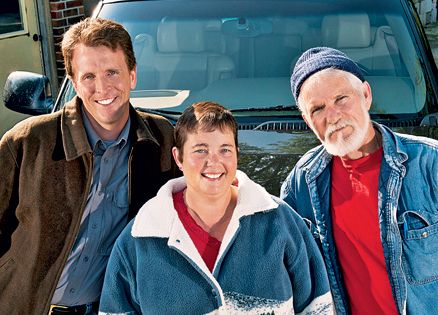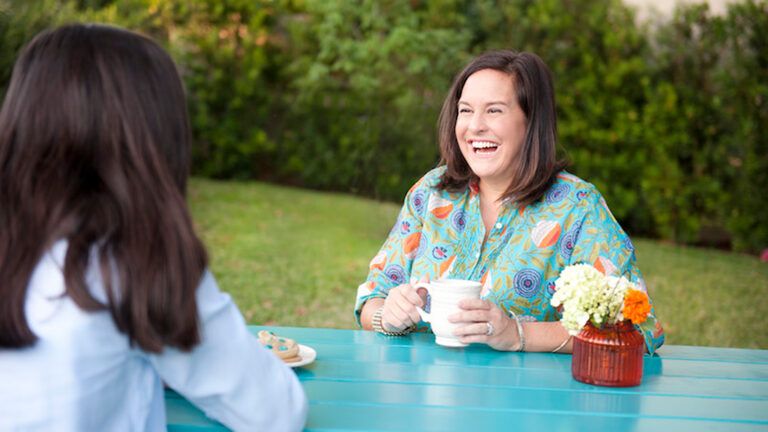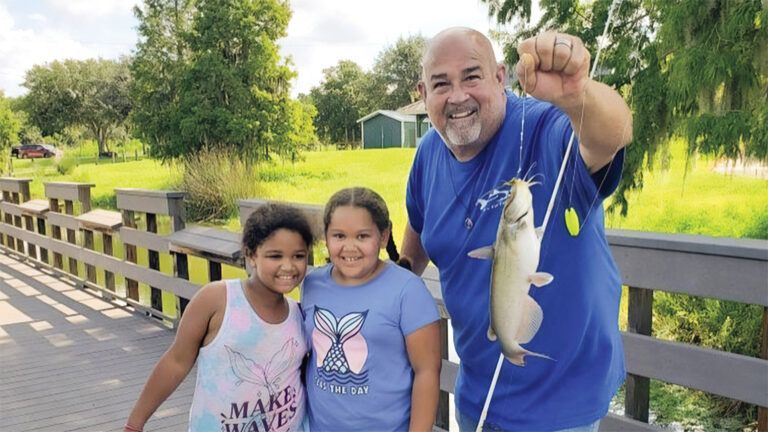Christmas isn’t a good time to be in the hospital.
Not for patients, not for an E.R. nurse like me. There’s always this sense that you’d rather be someplace else.
And no wonder—while most people were with family, surrounded by love, exchanging old stories and new gifts, I was in my scrubs, in a fluorescent-lit, linoleum-tiled emergency room, dealing with some form of tragedy.
In fact, three years ago, my family celebrated Christmas a week early because I was scheduled to work the holiday shift at Mercy Hospital in Oelwein, Iowa, a rural 25-bed facility. I was on duty the night of December 23 when an emergency alert came in. An ambulance was en route with an auto-accident victim. Male, early thirties. Possible head injury.
The paramedics rolled the man in on a gurney, their faces flushed from the cold. The blizzard that had blown in hadn’t let up. Eight to 10 inches of snow had fallen, drifting to two feet in places.
The accident victim was lying on a backboard, wearing a C-collar to keep his neck and spine immobilized. His clothes were sopping wet and he was shivering. One of his shoes was missing. A paramedic read off his vital signs. His numbers aren’t bad, I thought, but this could go either way. He’d stalled in a snowdrift along a two-lane highway. He was still in his car when a pickup truck plowed into him from the rear.
Our E.R. staff went to work. We took CT scans of his head and neck. No damage to his brain or spinal column. No signs of internal bleeding. He’d been very fortunate. He would stay here a few hours for observation, then the doctors would release him. “My car’s probably okay to drive,” I heard the patient say. “I just need to get it from wherever they towed it.”
For the most part, my job was done. Some paperwork, and he’d be on his way. I looked at his chart. His name was Daniel Simmons. We’d gotten him out of his wet clothes and thrown them in the dryer. My eyes drifted to his feet. One shoe. How was he going to drive in this cold in his stocking feet?
The least I can do is get this guy shoes, I thought. I fetched my purse, got one of the maintenance men and handed him a twenty-dollar bill. “Go to Kmart and get the cheapest pair of shoes you can find,” I told him. “Doesn’t matter what they look like as long as this patient can walk in them.”
The maintenance man returned 20 minutes later. “Here,” he said, handing me eight dollars in change and the ugliest pair of shoes I’d ever seen.
I gave them to Mr. Simmons. “I’m Dan,” he said, chuckling as he put the shoes on. “Gosh, that was nice of you. Beyond the call of duty.”
“Don’t make me out to be a hero,” I said. “You would have done the same for me if our situations had been reversed.”
Dan wanted to get on the road again, but the weather argued against it. Besides, I couldn’t help worrying, What if he turns out to have a concussion? They don’t necessarily show up on CT scans. I’ll just get him a place to stay for the night, I decided. I went to one of the hospital supervisors. “Do we have an empty room?” I asked. “I’d like to let Dan Simmons—the auto-accident victim—stay here for the night.” She said sure.
I got Dan settled. He assured me he was fine, that he’d pick up his car in the morning. Well, that’s that, I thought.
Soon after, my shift ended and I got in my car to go home. I turned on the radio. Christmas music filled the car and for some reason, it made me think of my mother. She was a nurse and I’d followed her into the profession, wanting to take care of people the way she did.
“Helping patients feel better is more than just tending to their medical needs,” Mom used to tell me. “It’s the little acts of kindness that remind them somebody is thinking about them, that to somebody they’re special. That’s the heart of nursing.” In the hustle and bustle of the E.R. I often lost sight of that. There were times nursing had become less a calling than a job.
At home, I told my husband, Bob, about Dan and his accident. “He thinks his car’s drivable, but how is he going to get to wherever the state police towed it?” I said. “I know tomorrow’s Christmas Eve and we’d planned to spend it together since I don’t have to work, but maybe we could give him a ride to his car…”
“Let’s see how things look in the morning,” Bob said.
When we got up, the roads were clear. I called Dan at the hospital. He’d located his car. It had been towed to a barn near the accident site, about 20 miles from the hospital. That’s all I needed to hear. “It won’t take more than an hour,” I promised Bob.
We picked Dan up in our Chevy Suburban. He was cheerful and chatty and seemed none the worse for wear. “I’m headed to La Crosse, Wisconsin,” he said. He’d stop to see a friend there, then drive to his parents’ house in St. Paul, Minnesota, to drop off the damaged car (it was his mother’s) before flying home to San Diego. “I think I can make it to La Crosse by lunchtime,” he said as we pulled up to the barn. Then we got a look at his car.
The trunk was accordioned into the backseat. The rear doors were crushed so badly they wouldn’t open. The driver’s seat flopped open like a bed. There was snow everywhere. No way could he drive that car. I pulled Bob aside. “If we can just get him to La Crosse, I can stop worrying,” I said. “How far is it?”
Bob studied me. “About two and a half hours.” I knew what Bob was thinking. This was getting a little crazy. First I’d gotten Dan shoes, then a room at the hospital, then we’d taken him to his car. Now we were embarking on a five-hour round-trip to Wisconsin? On Christmas Eve, no less. I was kind of amazed myself. If someone had told me I’d spend my day ferrying a stranger hundreds of miles, I’d have said, “No way.”
Bob waved Dan into our Suburban. “We’ll take you to La Crosse,” I said.
“Are you sure?” he asked. “What about your own Christmas?”
I told him we’d just returned from an early holiday celebration, where our family had gathered at my younger daughter’s house.
“That’s funny,” Dan said. “My family had an early Christmas too.” He’d been driving from his brother’s home when the accident happened.
We got on the highway and Dan told us more about himself. He’d grown up with his sister and two brothers in St. Paul. His parents were retired teachers. He told us about all the places he’d visited since graduating from college. He was working as a reporter in San Diego now. Then he said softly, “I can’t thank you enough for doing this. You know, not many people would go out of their way for a stranger the way you two have.”
Bob said he’d been in the Navy as a young man and knew what it was like to be stranded far from home. He and Dan kept talking, but I fell silent. I was thinking of another Christmas, when Bob had lost his job. We had our children to provide for, and I wasn’t sure how we were going to get by. I went to church and prayed harder than I ever had, asking God to please help us in some small way.
Later I went to the post office to get our mail and there was an envelope for us. The return address was the North Pole. I opened it up and found a twenty-dollar bill inside and a note that read, “I hope that you have a blessed Christmas. I’m thinking about you and your children.”
“Who sent this?” I asked the postmistress. I suspected she was the one, but she wouldn’t say anything except, “Maybe one day you’ll have a chance to help somebody out.”
It was like my mom’s saying about the heart of nursing, “It’s the little acts of kindness that remind people somebody’s thinking of them.” I looked out the window of our Suburban. A sign said we were almost to La Crosse. When Dan’s friend turned out not to be home, I asked Bob, “How far is it to St. Paul?”
He smiled. “Another two and a half hours.”
We got Dan home in time for Christmas Eve dinner. He’d secretly called his parents at one of our rest stops, and they’d set places at the table for Bob and me. “To take care of our son like you have—you are our Christmas miracle,” his mother said.
No, I thought, Dan is mine. Through him, God had reopened my heart to nursing, to taking care of people body and soul. He’d reminded me of who I am and why.
Bob and I went back to Oelwein that night. Dan and his parents wanted us to stay over, but I had to work the next day. Yes, it would be Christmas, but I knew where I belonged—in the E.R. at Mercy Hospital—and I couldn’t wait.
Find more stories on hope.




